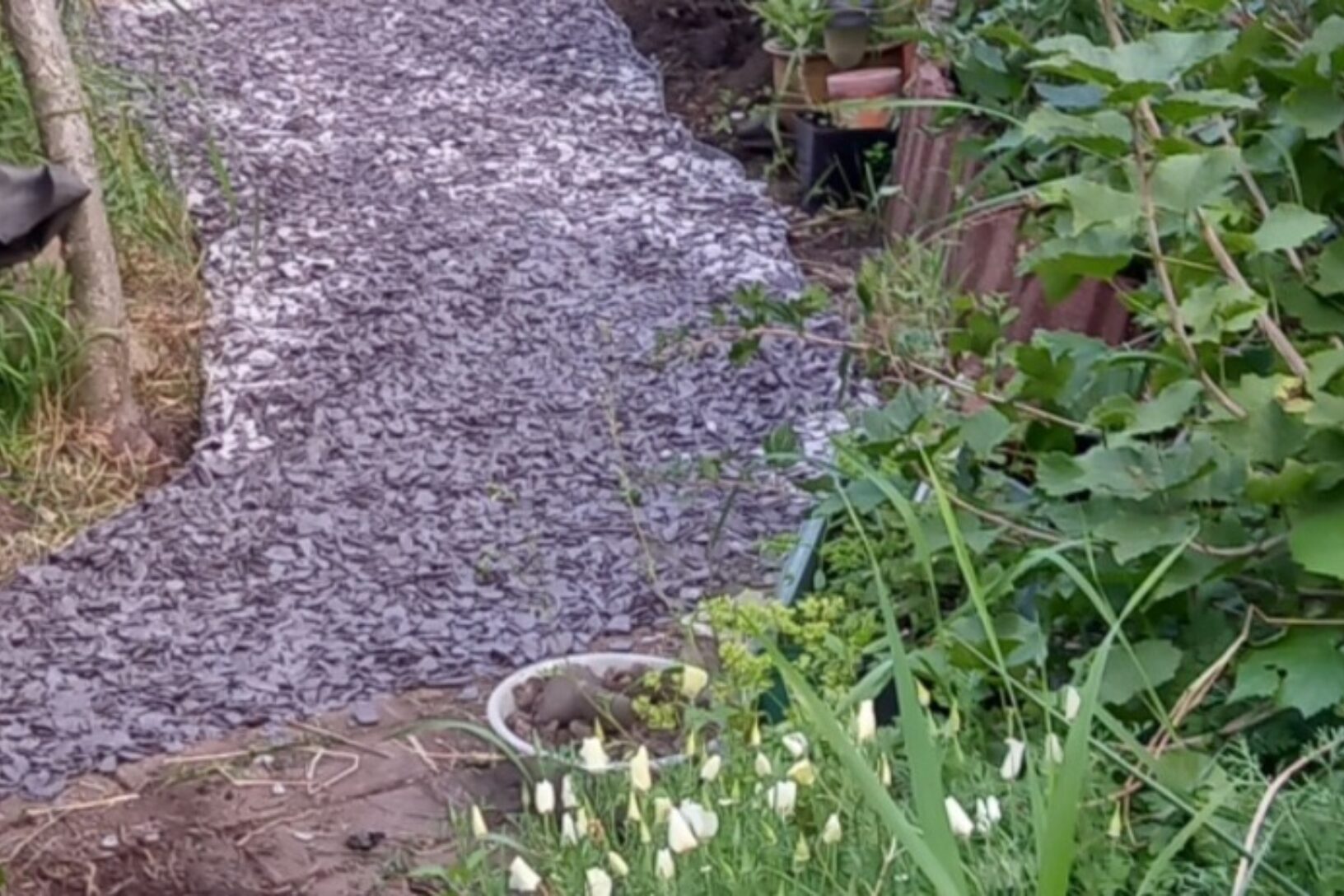
What started your interest in gardening?
Growing up, my parents had a garden. This was a very important space for me, I was out there a lot. I was always active as a child, always energetic and the garden suited me. It was a safe space where I couldn’t break stuff!
I also watched my parents tend the garden.
I lost my Mum when I was in my 30s. I moved out of London and felt an urge to get into gardening. I took a horticultural course, which I continued for two years.
I was always active as a child, always energetic and the garden suited me. It was a safe space where I couldn’t break stuff!
Jacks
I went on to do gardening jobs for older people in exchange for cake! It was a skill exchange. I got fed and they got the help they needed, as well as a chance for us to chat as I worked.
I eventually came back to London. I took some Thrive courses as I was looking to get into social and therapeutic horticulture. Now, I’m a social worker, and I’m always taking my clients outside into garden spaces.
What sort of growing space do you have?
I’ve got a city garden; it must be around 13 feet wide and 20 feet long. I grow a lot of food in it, like cabbages, kale, tomatoes, lettuce and onions. I like to have something growing all year round.
Even though slugs in London are monster-sized, I try and garden to be organic and animal friendly. It can be a tricky balance. Tomatoes are good and companion planting works well, such as planting French marigolds that attract hoverflies that then eat the aphids that are a pest of nasturtiums.
How does gardening support your health and wellbeing?
In every way – physically and mentally.
I was diagnosed with ADHD when I was 50. I wish my mum had still been here to learn about my diagnosis – it would have been an explanation for some of my behaviour as a child.
I remember in primary school noticing that other children's interests were different from mine. While they wrote about spending spare time relaxing, sleeping, and watching TV, I was constantly out, playing, being active and in the garden. My diagnosis has helped me realise why my attention was so changeable.
Society can be quite rigid. Children are expected to fit into this educational system and many people don’t. Forest schools and gardens can be a healthy alternative, though.
Gardening ticks lots of boxes for mental and physical health.
Jacks
Gardening ticks lots of boxes for mental and physical health. An outdoor space is important to play and get lost in. But, in a garden you also benefit from boundaries. You know where you can’t go beyond and where your limits are.
Being outside, fresh air benefits us neurologically. They say cyclists are much more switched on than drivers due to being in the fresh air.
Gardens are also our link to nature, which we humans are part of. When we look at a bee, the bee looks at us. We’re so integral to nature, but how we live our lives can be so removed from it.
What advice would you give to others gardening with neurodivergent traits?
Neurodiversity is so unique. Everyone is different.
I like lists. They remind me to do things and how to be. If lists don’t work for you, try different things.
Neurodiversity is so unique. Everyone is different.
Jacks
If you’re goal driven, go for activities with quick results. When you cut the grass, for example, you can immediately see the results.
Try and get out every day. You don’t need an aim. Just watch, look, draw your favourite tree, think about the colours, sit with a cup of tea, or notice bees in winter!